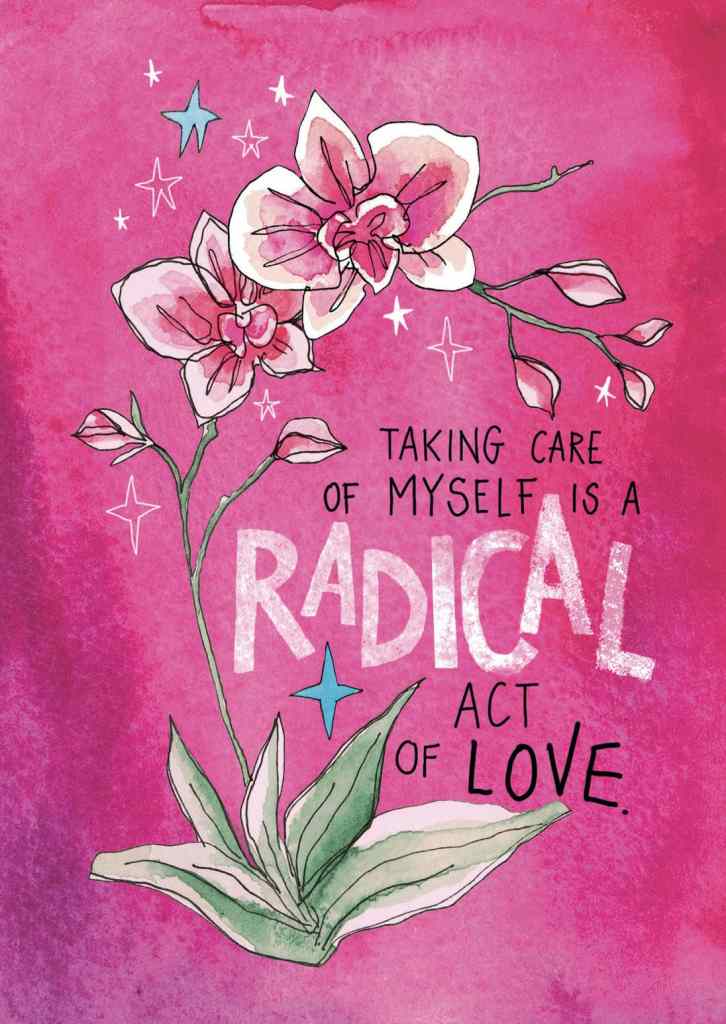(TW: Discussion of abuse and suicidal ideation..)
Get triggered. Numb or distract yourself from the pain. Repeat.
Raise your hand if you have spent WAY too much time in this cycle.
(Hi. It’s me. I’m raising my hand.)
My guest for this episode is a longtime friend whose unique philosophy and therapeutic techniques can break this cycle for good. Dick Schwartz is the founder of Internal Family Systems (IFS), and this amazing man and IFS therapy have transformed countless lives—mine included.
So many of you have been looking for an IFS therapy podcast or an explanation of IFS therapy, and I’m so thrilled to bring it to you. IFS therapy is a huge, huge topic for me. IFS is a type of psychotherapy designed to help people heal by accessing and healing their protective and wounded inner parts.
I’ve been very open about my history with multiple addictions, as well as my recovery from emotional trauma from my childhood. I can’t begin to tell you how revolutionary it was when I discovered Dick Schwartz and IFS therapy. Instead of fighting against the addictions and the triggers and the traumas, you acknowledge them, create space for them—maybe even thank them.
IFS is one of those concepts that can take a hot minute to wrap your head around, but—at least for me—once I did, it was a whole new world. I wanted to run out and tell EVERYONE about it.
I spoke with Dick for an episode in 2021 (episode 19, to be exact), very early in the podcast, because he was at the top of my list of guests I wanted to have on. Now he’s back on the show and we’re diving even deeper into IFS.
in this episode, you’ll learn:
- How IFS therapy works, and examples of IFS therapy
- What we mean by “IFS therapy parts”
- How IFS therapy says your body responds to triggers, and why this response creates such a tough cycle to break
- The behaviors and trauma responses you’ve exhibited your whole life that are out of alignment with your true self
- Why we tend to react so strongly to characteristics in other people that we don’t like in ourselves
- How you can use IFS therapy techniques to finally heal and find peace
This is big, heavy stuff. With IFS therapy, we’re talking about breaking cycles of addictions and long-held trauma, healing your inner self, and finally finding alignment, calm and confidence.
what does internal family systems therapy do?
You don’t have to be facing addiction or “big T Trauma” to benefit from IFS. “Little t trauma” can be deeply damaging if left unhealed. And you deserve to heal, no matter what you’ve faced. Which means IFS therapy might be right for you.
Looking for an explanation of IFS therapy? I cover it in my book Happy Days, and I want to bring you some exclusive excerpts from that book so you can get a feel for what we’re talking about on the podcast.
Perhaps you notice a critical part of yourself show up when you make a mistake at work, or an outraged, aggressive part of yourself freak out whenever you’re frustrated with your spouse. It’s likely that throughout your life you’ve even referred to these different parts without realizing it, saying something like, “Whenever someone tells me I’m wrong, there’s a part of me that becomes outraged and fights back.”
While you may have referred to these behaviors as different parts, it’s unlikely that you ever perceived them as distinct personalities. It’s more likely that you thought of these parts as emotions or as justified reactions to outside events.
In IFS therapy the concept is that our big reactions and emotions are actually parts of us that show up to protect us from feeling deeper wounded parts (often younger unresolved parts).
…
Take a moment to contemplate that the ways you run from and manage your triggers are likely protecting you from experiencing deeper feelings that were developed at a very young age. Those deeper feelings in IFS are called “exiled parts.” These wounded child parts can be so unresolved and therefore so deeply painful that we will do anything we can to protect ourselves from facing them. That’s where your “protector parts” come in to manage those unresolved feelings. Working tirelessly to keep you from having to face those deep wounds, the “protector parts” put up a strong defense.
– Happy Days
Breaking in here to explain a little further, there are two types of protectors: managers and firefighters. Managers often run the show and are commonly the protectors that are with us on a day-to-day basis. Their job is to keep us protected from anything that triggers the impermissible, unhealed feelings from our past (the exiled parts). Managers can include the parts that try to control everything, or the judgmental parts that complain about politics and the neighbors in an effort to avoid feeling a deep sense of inadequacy. Managers often present as extreme and difficult, but they are also the parts of us that we rely on most to feel safe.
When something extremely activating occurs and the managers are no longer able to keep our feelings under control, the firefighters step up. The firefighters are the most extreme protectors. They can include addicted, harmful and even suicidal parts. The firefighters show up when an exile (a deep inner feeling) is triggered and the manager’s coping mechanisms no longer work. In response to overwhelming fear and terror, the firefighter gears up to put out the fire. Firefighters are often the addicted or suicidal parts that will do anything to try to numb the pain.
We all have exiles (often scared inner children) and protectors (the ways we react when triggered in an effort to feel safe). For example, an exiled part may be based on a childhood experience of feeling abandoned. When the fear of abandonment is triggered the protector part will withdraw love to temporarily secure a sense of control and therefore safety.
The exiled parts are often thought of as the wounded child parts that at some point experienced some serious form of adversity. Unresolved instances of substantial adversity can result in fear, anxiety, helplessness, rage, or a sense of being alone, unloveable, and inadequate.
Depending on your situation, the adverse moments from your past may be hidden from your consciousness, like they were for me. Conversely, exiled parts can form at any age following a traumatic experience. You may not even be aware of these uncomfortable exiles.
it takes time and courageous therapy to recognize the split-off parts of ourselves that represent the programming, experiences, and conditioning from childhood to the present
Working with these wounded exiles is a very gentle process that requires the support of a trained IFS practitioner. For now, all I ask is that you acknowledge the idea that when you’re triggered it’s likely activating an unresolved wounded part of yourself. At this moment, that part is safe and there is nothing we need to do with it.
The protector parts are the parts of us that show up to manage the exiles and keep them under control so we don’t have to face the impermissible feelings of our exiled past. Extreme attachment injury with a primary caregiver or other childhood trauma can make us lose trust in others, therefore the protector parts do whatever they can to keep the exiled parts safe.
Protectors establish the unhealthy role of parenting and caring for the exiled parts. As they grow older, child exiled parts rely on the protectors to keep them safe. The unconscious mind is terrified by the exiled parts and fears that they could be triggered at any moment into anger, panic, shame, anxiety, depression, worthlessness, and even grief. Therefore, the protectors are always on standby ready to keep the unconscious triggers from being revealed.
Protector parts are often associated with the ways we run or fight back. For instance, when someone puts you down, you get triggered into a rageful defensive state (an exiled part). The way you respond to that putdown with rage and defensiveness is a protector part trying to save you from facing the deep-rooted feeling of shame or inadequacy. Your protector parts can present as rageful outbursts, controlling behavior, obsessive thoughts, judgment and addictive patterns that can lead to drug, alcohol and other kinds of abuse.
– Happy Days

If you want to learn more about IFS and my journey with trauma recovery, check out my New York Times bestselling book Happy Days.
what is the self in ifs therapy?
In this episode, Dick and I got pretty nerdy (proudly) about the specifics of IFS and how to use it to heal.
Here’s how I describe the Self in my book Happy Days.
In therapy sessions when he was first exploring the idea of parts, Dick found that when his patients’ parts felt safe and were allowed to relax, they would spontaneously experience confidence, openness, and compassion.
This loving and compassionate adult part is what Dick then referred to as the Self (with a capital S). In IFS, the Self represents the undamaged, resourced, enlightened essence of who we are. Self is compassionate, wise, loving and accepting of all of our parts, almost like a healthy parental figure. This Self knows how to take care of our exiles and protector parts.
The qualities of Self are described by eight C words: calm, clarity, confident, curious, compassionate, connected, creative, and courageous. The goal of IFS is to access and live from Self embodying the qualities of the eight Cs.
Think of your resourced adult Self as who you are at your best—unstressed, at peace, confident, and compassionate. If you’re a parent, the Self is reflective of the part of you that can compassionately care for and love your child when they’re in moments of distress.
For instance, I recently had a conversation with my friend about something that was pissing him off at work. I asked him a simple question, “If your son was dealing with this issue, what would you tell him?” Without hesitation, he said, “Don’t worry, Son, Daddy’s got this.” This response was his adult resourced Self speaking up.
– Happy Days
your resourced adult Self is who you are at your best when you are unstressed, at peace, confident, and compassionate
how to heal your wounded inner parts with ifs therapy
Here’s what I say about healing your wounded inner parts in Happy Days:
Respecting a child’s feelings is an act of respecting their brain development and their human condition. It’s common for a parent to want to shush a child or say, “You’re fine. You’re okay.” But when we shush and dismiss with our words or attitude, it’s like saying, “Your feelings don’t matter.” Connection is key to helping a child feel worthy of their big emotions and preventing shame, so that they become resilient.
The same goes for how we care for our inner child.
The next time you feel triggered or notice a protector part take over, ask yourself the following questions:
What do I need to feel seen right now?
What do I need to feel soothed right now?
What do I need to feel safe right now?
What do I need to feel secure right now?
Between each question pause and allow your adult resourced Self to speak. Trust the inner guidance that you receive. This inquiry is a spiritual conversation between your inner child parts and your adult resourced Self. It’s a form of prayer.
Each time you connect to and care for your child parts, you strengthen your relationship with the inner wisdom of your resourced Self.
Committing to this connection will help you establish the greatest relationship you’ll ever know, the secure relationship to Self that you can always rely on. Developing this connection is like reclaiming the security you once lost as a child.
– Happy Days
Relying on your own inner parent will give you a newfound sense of safety and resilience to move through life with grace.
gabby
Between this podcast, the IFS website, and my book Happy Days, you are going to be SO set up to explore IFS. And if it resonates with you, I highly recommend that you seek out a licensed IFS practitioner.
I am geeking out right now about being able to share all this with you. Seriously.
weekly card reading

It is amazing that the concept of self-care came up this week. Self-care is so often portrayed as face masks and manicures. I’m all about those—don’t get me wrong—but I want to make it clear that more enduring, transformative self-care involves truly taking care of yourself, from the inside out. And of course, by self, I mean Self with a capital S—the kind of Self we talk about in IFS.
I love this section from Happy Days with a prayer for the Self:
Whenever I find myself disconnected from Self I say a prayer to Self. The same way I intuitively pray to God, Spirit, Angels or the Universe, I pray to Self. To me they are one in the same. An ever-present energy of love guiding my thoughts back to the present moment. Here are some examples of prayers to Self that have greatly benefited my life.
I welcome Self to care for all of my parts.
May Self-Energy support me in this moment.
May all parts be led by Self.
I surrender this extreme part to the care of Self.
I welcome Self to reorganize this for me.
May all parts feel love and accepted by Self.
Praying to Self is a divine practice of inviting Self-Energy into your consciousness to alchemize your triggered parts in the moment. Each time we turn to Self through prayer we strengthen our connection. These prayers offer all of your parts the chance to calm down and be cared for.
– Happy Days
One of the most powerful kinds of self-care is to address the trauma and pain that’s holding you back from the life you deserve. I know it sounds intimidating, but healing is possible. (Believe me, I’m speaking from firsthand experience!)
Wishing you allllll the peace and healing.
get more gabby
free manifesting meditation to attract your desires
- Dr. Richard (Dick) Schwartz developed Internal Family Systems (IFS) in response to his therapy clients’ descriptions of various parts within themselves. He noticed systemic patterns to the way these parts were organized across clients. He also found that when the clients’ parts felt safe and were allowed to relax, the clients would spontaneously experience the qualities of confidence, openness, and compassion that Dr. Schwartz came to call the Self. He found that when in that state of Self, clients would know how to heal their parts.
A featured speaker for national professional organizations, Dr. Schwartz has published many books and more than 50 articles about IFS. Learn more here. - Triggers and addictive cycles are a massive topic, and Dick and I could have talked about this for literally hours. If you want more, I encourage you to visit the IFS website, where you can find more on Dick’s work. You can also check out my book Happy Days, which has a wealth of information about IFS therapy as well as other strategies to truly take care of your whole Self.
- Try my gabby coaching app for free —get access to hundreds of meditations, lessons and talks all in a beautifully designed app. Start your free trial to unlock your 7-day manifesting jumpstart!
- For a deeper dive check out my books.
- If you feel you need additional support, please consult this list of safety, recovery and mental health resources. I’m proud of you for your commitment to self-care.
disclaimer
This podcast is intended to educate, inspire, and support you on your personal journey towards inner peace. I am not a psychologist or a medical doctor and do not offer any professional health or medical advice. If you are suffering from any psychological or medical conditions, please seek help from a qualified health professional.
